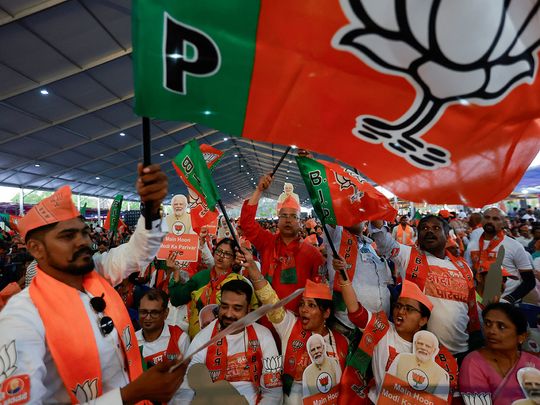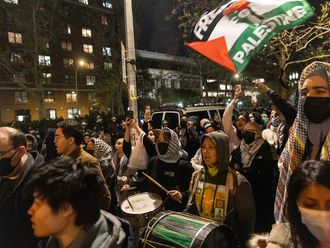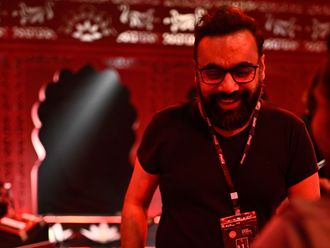
An Indian citizen, freshly off the colonial bandwagon, learnt how priceless his vote was in 1951-52 when the first general elections took place in a newly independent nation. The elective process — selective and without adequate representation of the common man — however, dates back to 1901.
Still bathed in the afterglow of freedom and patriotism, the country spurred by Jawahar Lal Nehru’s slogan ‘Naya Hindustan Zindabad,’ (Long live new India) embraced democratic credentials. What made it easier was the line-up and the bench strength of stalwarts who were in equal parts leaders and statesmen standing under the umbrella of India’s new constitution that replaced the Nehru-led Constituent Assembly.
The words of BR Ambedkar, the Father of the Indian Constitution are as relevant today, ‘However good a Constitution may be, if those who are implementing it are not good, it will prove to be bad. However bad a Constitution may be, if those implementing it are good, it will prove to be good.’
Biggest experiment in democracy in human history
Gandhi, Nehru, and Sardar Patel along with their peers hand-held India’s citizens into a new era where an estimated 14 million displaced refugees needed new beginnings. Other prominent names like Lal Bahadur Shastri, Abul Kalam Azad, and Syama Prasad Mookerjee headlined an assembly of renowned leaders who got down to nation-building through the election process. They led a cast of 14 national parties into the fray.
There was no prototype to follow and these stately leaders kept their dignity as close to their being as they did the idea of a pluralistic India. ‘The spectacle of what is called religion, or at any rate organised religion, in India and elsewhere, has filled me with horror and I have frequently condemned it and wished to make a clean sweep of it. Almost always it seemed to stand for blind belief and reaction, dogma and bigotry, superstition, exploitation and the preservation of vested interests,’ Nehru summed up a new nation that clung to a diverse ethos.
The challenges were unprecedented, elections were in 68 phases, and India moved to the unchartered territory of universal adult suffrage. Crippled by high illiteracy, voters struggled to even identify their candidate of choice on the ballot paper. The cost of the maiden elections was just over 10 crores — a fraction of this sum is probably spent on political IT cells today and India’s first Chief Election Commissioner Sukumar Sen termed it the biggest experiment in democracy in human history.
Fast forward 77 years and as the world’s largest election unfolds, this vital post and the Commission itself face criticism for turning a blind eye to frequent violations of the model code of conduct. Misinformation is also rife; India’s ruling BJP candidate actor Kangana Ranaut says — because she can — that Bose and not Nehru was India’s first prime minister, this intellectual fall is ubiquitous and tough to arrest.
Lessons to be drawn
Is history existential when facts are disposable? ‘Where words come out from the depth of truth,’ Rabindranath Tagore’s memorable lines lay lost as lies are peddled, especially through the prism of religion. Ten years later, the past is the present, the future has no promises.
After the 1962 defeat to China, Nehru — much maligned by the right-wing — sat in Parliament facing a no-confidence motion and an angry opposition for four straight days. ‘Personally, I have welcomed this motion and this debate. I have felt that it would be a good thing if we were to have periodical tests of this kind,’ was his reply. There are lessons to be drawn here.
India has faced crises along the way, the march of democracy, however, does have a habit of returning to its starting point. In 1975, Indira’s Emergency first queered the pitch by suspending civil liberties even though barely four years earlier she had done it right winning a landslide victory on the back of her ‘Garibi Hatao’ slogan. Can development and welfare ever let a nation down? The personality cult has a limited shelf life as Indira’s hammering at the hustings less than two years later showed.
India — the world’s largest democracy — needs a forward looking vision, not fear mongering. Where is the flame of hope that promises jobs, health care, education, and safety and not, politics of faith and food? From the pluralism of the first election to the hate speeches of 2024, there is a tear in the fabric. Will it be repaired, only time will tell.











